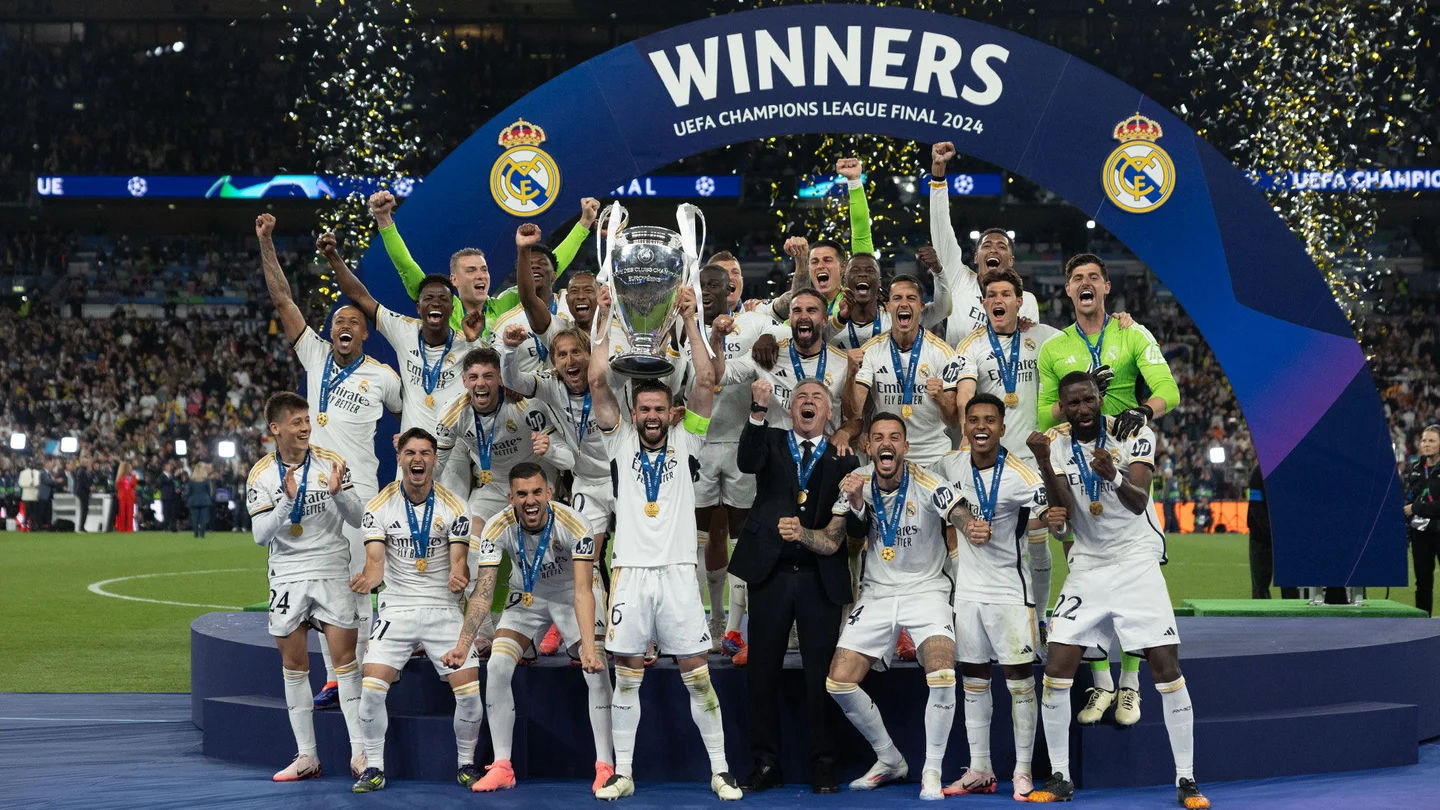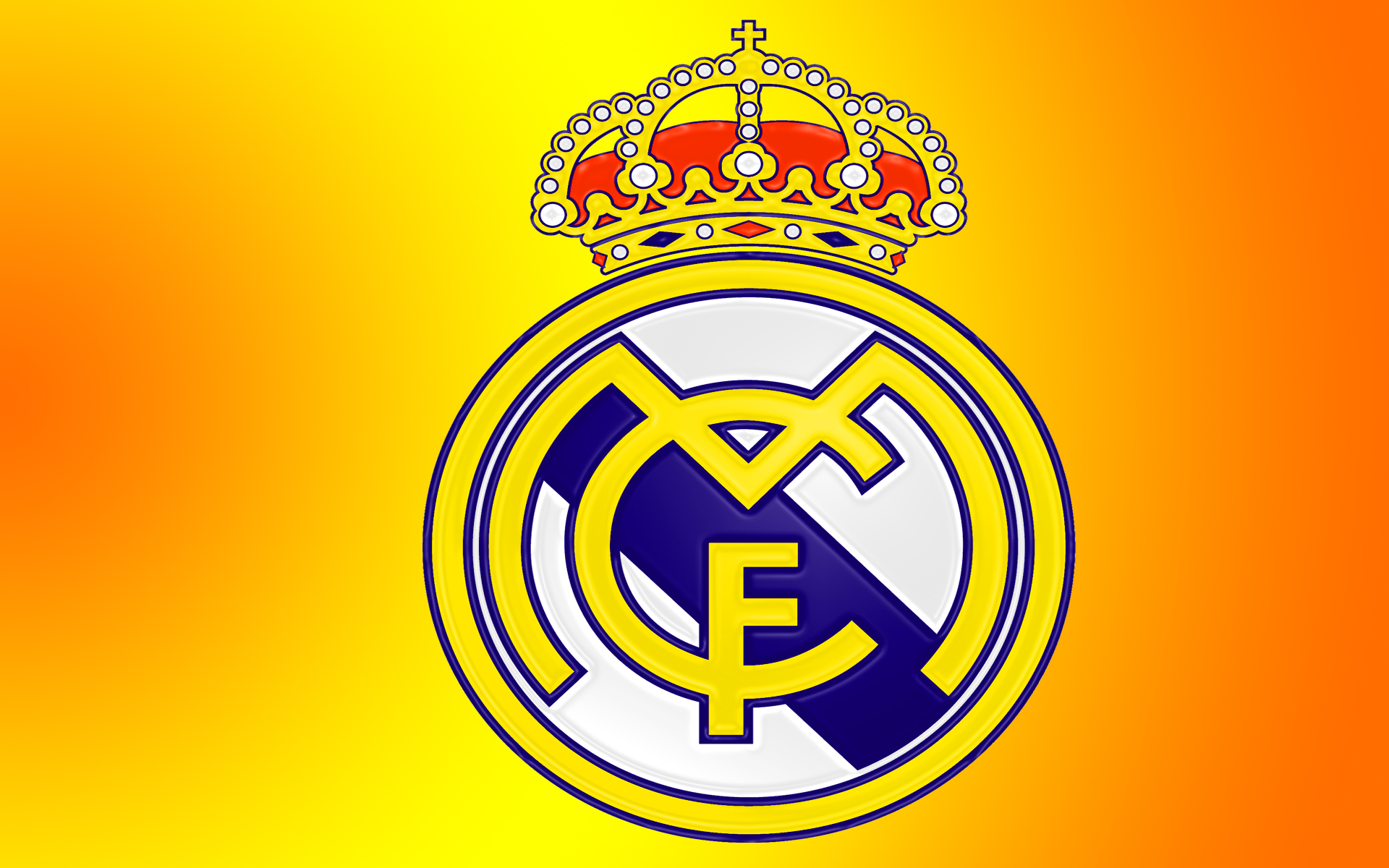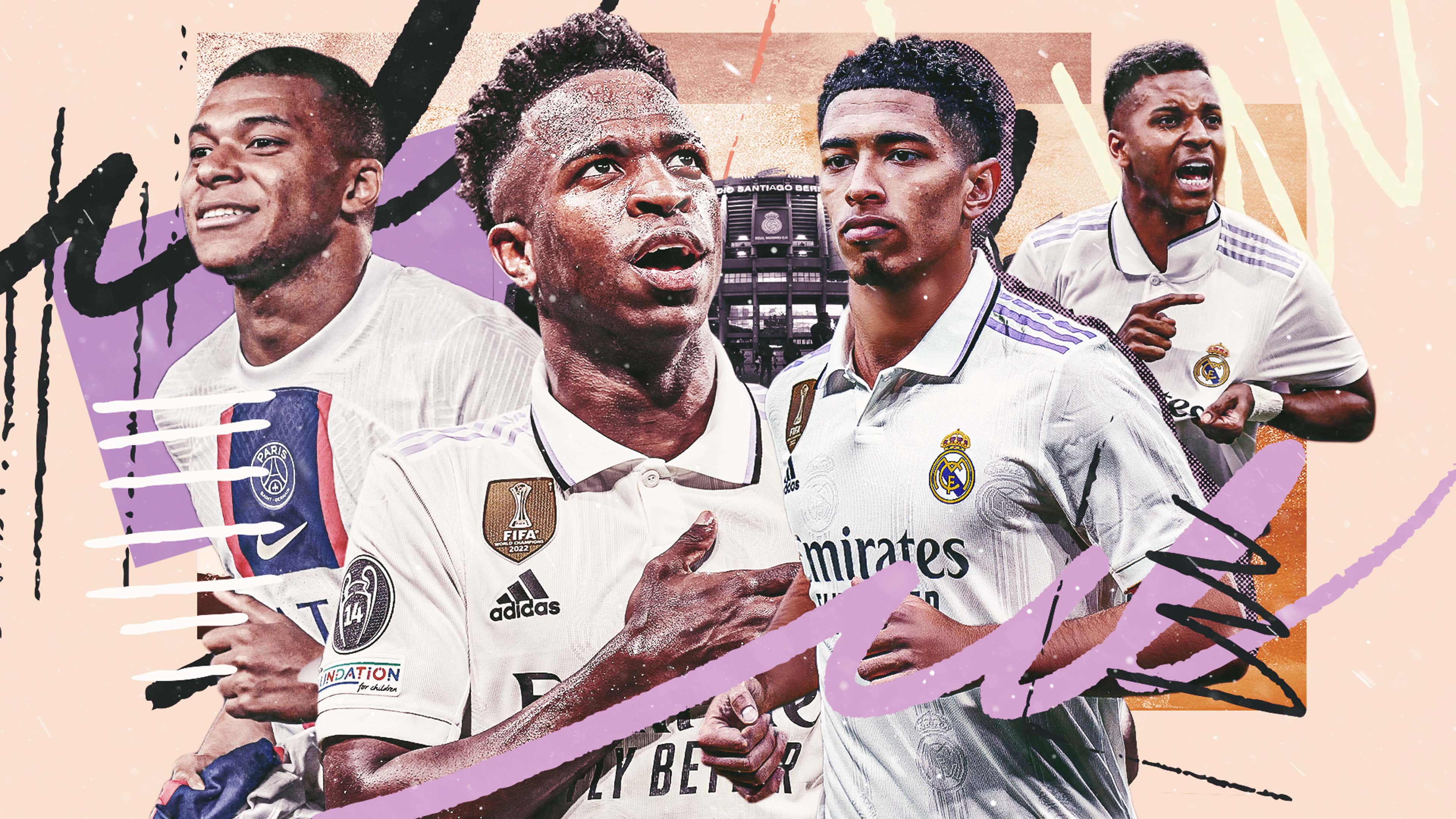Real Madrid 11-1 Barcelona - The Controversial Match
Picture this: a football match, a classic rivalry, and a scoreline that simply defies belief. We are talking, you know, about a game that left a mark, a really big one, on the history books of Spanish football. This was not just any contest between two giants; it was, in a way, a moment that sparked conversations and arguments for decades, a truly unforgettable event. The sheer difference in goals, eleven to one, makes it stand out, prompting many to wonder how such a thing could ever happen between two teams that usually stand so close in skill.
This particular game, played out on June 13, 1943, was a semifinal return leg in the Copa del Generalísimo, a competition that, as a matter of fact, was then known as the Copa del Rey. It followed a first leg where Barcelona, quite surprisingly, had managed to secure a three-goal lead. So, the stage was set for a tense return fixture, not for a complete blowout. The final score of Real Madrid 11, Barcelona 1, is, therefore, something that has been talked about endlessly, fueling a narrative that goes far beyond just what happened on the pitch that day.
The story surrounding this match is, you know, a mix of documented facts, whispers, and even political claims. It's a tale that involves more than just football players and their skills; it touches on the broader atmosphere of the time, including powerful figures and the feeling of the period. To truly grasp the weight of this game, we have to look at the circumstances that surrounded it, the feelings involved, and the lasting impact it had on one of the biggest rivalries in the sporting world.
- Bouldering Project Brooklyn
- Wet And Wild Hawaii
- Regal Cinebarre West Town Mall
- Studio Movie Grill Alpharetta
- Regal Hyattsville Royale
Table of Contents
- The Shocking Score - Real Madrid vs Barcelona 11-1
- What Really Happened on June 13, 1943?
- A Match Shrouded in Whispers - Real Madrid vs Barcelona 11-1
- How Did Political Powers Influence the Game?
- The Aftermath - Real Madrid vs Barcelona 11-1's Lasting Impact
- What Was the Press Saying After the 11-1 Defeat?
- Beyond the Scoreboard - Real Madrid vs Barcelona 11-1's Legacy
- Is the 11-1 Match Still Relevant Today?
The Shocking Score - Real Madrid vs Barcelona 11-1
On a day that would become, you know, a talking point for ages, Real Madrid delivered a truly overwhelming victory over Barcelona. The score, a staggering eleven goals to one, came during the semifinals of the Copa del Generalísimo. This was, as a matter of fact, the return leg, and it followed a first match where Barcelona had, in fact, secured a three-goal advantage. So, for the second game to end with such a massive difference in goals was, well, pretty much unheard of, especially in a contest between these two clubs.
The event took place on June 13, 1943. This date is, you know, often pointed to as the day of the most forceful outcome ever seen in this particular rivalry. The match itself was, in a way, more than just a game; it was a moment that sent shockwaves through the football community and beyond. The sheer scale of the defeat, the biggest Barcelona loss to date, is something that has been etched into the collective memory of fans and historians alike. It's a score that, basically, demands an explanation, or at least a deeper look into what truly happened on that pitch.
The first game, which had Barcelona winning by three goals to nil, was played at Les Corts. Real Madrid visited there on June 6, 1943. It's important to remember that at this time, neither Real Madrid nor Barcelona were, you know, considered the top teams in Spanish football in terms of their sporting achievements. This context makes the 11-1 score even more perplexing, as it wasn't a case of a dominant team simply crushing a much weaker opponent. The circumstances surrounding the two matches, particularly the return leg, are, you know, quite complex and have been the subject of much discussion and investigation over the years. The difference between the first game's result and the second's is, well, pretty dramatic, to say the least.
- Schnebly Redlands
- Spca Monterey
- Newport Vineyards
- The Sharpest Rides Car Dealer
- Anteater Recreation Center
What Really Happened on June 13, 1943?
So, what exactly unfolded on that day in 1943 that led to such an extraordinary score of Real Madrid vs Barcelona 11-1? The match, it seems, was played in an atmosphere of intense feeling. This tension, you know, was so significant that it eventually led to both club presidents stepping down from their positions. The air was thick with something more than just football excitement; there was, apparently, a palpable sense of unease and pressure that surrounded the entire event. This feeling, in a way, contributed to a game that was far from a typical sporting contest.
Reports from the time, including a written account by Eduardo Teus, pointed to a situation where the officiating was, you know, not fair. His chronicle highlighted what he described as unjust arbitration and a generally unfriendly setting for the Barcelona team. These claims suggest that the game was influenced by factors beyond just the players' abilities or the coach's plans. The environment in which the match was played, therefore, is often cited as a key element in understanding the final, very unusual, result. It's almost as if the game itself was overshadowed by events happening around it.
The defeat, of course, became known as the biggest Barcelona loss ever recorded. This match, in fact, caused a huge argument between the two clubs and, what's more, an institutional upheaval that had no real comparison in the past. It was a moment that, basically, shook the foundations of both organizations. The lingering questions about the fairness of the game and the nature of the pressure involved have made this particular Real Madrid vs Barcelona 11-1 match a lasting point of discussion, a sort of historical puzzle that people still try to put together. The sheer scale of the upset, you know, made it impossible to ignore, and its echoes continue to resonate.
A Match Shrouded in Whispers - Real Madrid vs Barcelona 11-1
The story of the Real Madrid vs Barcelona 11-1 match is, you know, not just about the numbers on the scoreboard. It's a story that is, in a way, surrounded by a lot of whispers and suggestions, particularly concerning what might have happened behind the scenes. There are, apparently, details, personal accounts, and claims of both political and sporting pressures that are said to have played a part in the outcome. These elements add a layer of intrigue and, well, a bit of controversy to an already astonishing result.
One of the most persistent and, you know, widely discussed claims revolves around the involvement of Franco's regime. The question often posed is how the government of the time might have, basically, put pressure on the Barcelona players to lose against Real Madrid in those Copa del Generalísimo semifinals. This suggestion paints a picture of a game where the outcome might have been influenced by forces far removed from the spirit of fair competition. It's a narrative that, in some respects, turns a sporting event into something much more significant, a moment tied into the broader political landscape of the era.
The Madrid press, during the days following the match, is said to have, you know, greatly emphasized certain attitudes, perhaps adding to the charged atmosphere. This suggests that the media of the time might have played a part in shaping public perception and, in a way, intensifying the feelings surrounding the game. The interplay between what was happening on the field, the alleged political interference, and the way the news was presented creates a really complex picture. It's a situation where, basically, separating truth from what might be just a story or even propaganda becomes a very difficult task.
How Did Political Powers Influence the Game?
So, the big question remains: how exactly did political powers, if at all, influence the Real Madrid vs Barcelona 11-1 game? The accounts suggest a very direct form of intervention. It's been said that, in essence, Franco himself, or someone acting on his behalf, communicated a clear message to the Barcelona players. The alleged message was, you know, a stark reminder of who held the authority, stating something to the effect of, "I am the boss here. It is my generosity by which you are..." This kind of statement, if true, would have been a very heavy burden for any player to carry into a match.
The impact of such a threat, or even the perception of one, on athletes is, you know, pretty significant. Imagine being told, basically, that your ability to even participate, or your well-being, depends on a certain outcome. This kind of pressure goes far beyond the usual demands of a sporting contest. It transforms the game from a competition of skill into something else entirely, a situation where fear might have played a considerable part. This element is what makes the 11-1 score, in a way, so much more than just a lopsided result; it becomes a symbol of a difficult period in history.
The controversy surrounding this particular match, and its alleged political undertones, has had a lasting effect on the rivalry between Real Madrid and Barcelona. It added a layer of historical bitterness and, you know, a sense of injustice for some. Understanding the truth behind this highly debated match and its connection to the political situation of the time is, well, pretty important for anyone trying to grasp the full story of this legendary football clash. The claims of coercion are, apparently, a central piece of the narrative, making it a truly unique event in sports history.
The Aftermath - Real Madrid vs Barcelona 11-1's Lasting Impact
The immediate fallout from the Real Madrid vs Barcelona 11-1 match was, you know, quite dramatic. As mentioned, the atmosphere during the game was so charged with tension that it led directly to the resignation of both club presidents. This shows just how much of an impact the game had, not just on the players or the fans, but on the very leadership of these two major football institutions. It was, basically, a moment of profound crisis for both sides, a real shake-up that few could have predicted.
The defeat, as we've heard, quickly became known as Barcelona's biggest loss ever. This wasn't just a simple loss; it was, in a way, a historical event that caused a huge uproar between the two clubs. It triggered what has been described as an institutional earthquake, something without any prior comparison in its scale and effect. The tremors from this match were, you know, felt far and wide, reshaping the relationship between Real Madrid and Barcelona in ways that would last for many years. It's a game that, quite frankly, left a very deep scar.
The incident also brought to light the complexities of the period, where sports and politics could, apparently, become very much intertwined. The idea that such a significant match could be influenced by outside forces added a new, very serious dimension to the rivalry. It meant that the competition was not just about athletic skill or team strategy; it was, in some respects, about something much bigger and more powerful. This Real Madrid vs Barcelona 11-1 game, therefore, became a symbol of a turbulent era, a moment where the lines between different aspects of life became, well, pretty blurry.
What Was the Press Saying After the 11-1 Defeat?
Following the stunning Real Madrid vs Barcelona 11-1 result, the press in Madrid, you know, certainly had a lot to say. Their coverage, apparently, tended to emphasize certain aspects of the match and the behavior surrounding it. This kind of reporting, in a way, can shape how the public remembers an event, focusing on particular details and perhaps downplaying others. The media's portrayal of the game and its aftermath would have been a significant part of how the story unfolded for the general population.
Eduardo Teus's account, for example, specifically called out the unfair officiating and the unfriendly atmosphere that Barcelona faced during the game. Such a strong statement from a journalist of that time would have, you know, added considerable weight to the claims of foul play. It suggests that even within the contemporary reporting, there were voices raising concerns about the integrity of the match. This kind of direct criticism from the press indicates that the controversy was not just something that emerged years later, but was, basically, a topic of immediate discussion.
The way the defeat was presented, as the biggest Barcelona loss to date, also contributed to its lasting impact. The media's focus on the scale of the defeat, and the subsequent "institutional earthquake" it caused, highlights how this game was perceived as a truly monumental event. The reports, you know, likely fueled the intense feelings between the two clubs and their supporters. It's clear that the press played a role in cementing the 11-1 Real Madrid vs Barcelona match as a truly infamous moment in the history of the sport, a story that would be passed down through generations.
Beyond the Scoreboard - Real Madrid vs Barcelona 11-1's Legacy
The Real Madrid vs Barcelona 11-1 match, you know, has transcended its simple scoreline to become a story that lives somewhere between truth, widely held beliefs, and even political statements. It's a game that is remembered as the largest goal difference ever seen in a "Clásico," the name given to these famous encounters. This particular return leg of the 1943 Copa semifinals holds a very special, and rather dark, place in the collective memory of both clubs and their fans. It's a moment that, basically, continues to be debated and discussed, long after the final whistle blew.
The ongoing fascination with this match speaks to its deep impact. People still try to understand the full picture, to sort out what was real from what might have been, you know, exaggerated over time. The fact that publications about this game have been shared widely shows that there's a strong desire to uncover all the details and to truly grasp the significance of what happened. It's a historical puzzle that, in a way, continues to challenge our understanding of how sports and broader societal forces can intersect.
The match serves as a powerful reminder of a specific period in history, where the lines between football and political power were, apparently, very blurred. It's a testament to the enduring nature of the Real Madrid vs Barcelona rivalry, which has, you know, absorbed this controversial event into its very fabric. The 11-1 game is not just a statistic; it's a narrative that contributes to the rich, complex, and sometimes difficult story of these two legendary clubs. It's a game that, quite frankly, continues to shape how people view their shared past.
Is the 11-1 Match Still Relevant Today?
So, is the Real Madrid vs Barcelona 11-1 match still important in today's football discussions? Absolutely, it is. Even if it happened many years ago, this game continues to be a point of reference when talking about the rivalry between these two teams. It represents, you know, a moment of extreme tension and alleged unfairness that has become part of the clubs' shared history. The story, in a way, adds a unique depth to the already passionate feelings between their supporters.
If a similar situation were to happen today, you know, the reaction would be absolutely enormous. The level of scrutiny, the media coverage, and the immediate investigations would be unlike anything seen before. The 1943 match, therefore, serves as a historical benchmark, a reminder of how much football, and the world around it, has changed. It makes you think about how different things are now, with live coverage, instant replays, and a global audience watching every move. The idea of such a score, with such alleged circumstances, happening now is, well, pretty much unimaginable.
The fact that this match is still discussed, analyzed, and even referenced in current debates about the "Clásico" shows its lasting impact. It's not just a dusty old record; it's a living part of the narrative that defines Real Madrid and Barcelona. The questions of truth, legend, and propaganda surrounding the 11-1 Real Madrid vs Barcelona game keep it alive in the minds of fans and historians. It's a story that, basically, continues to fuel the rivalry, adding layers of historical context to every new encounter between these two giants of the sport.
This article has explored the Real Madrid vs Barcelona 11-1 match, covering its astonishing score on June 13, 1943, during the Copa del Generalísimo semifinals. It touched upon the preceding 3-0 Barcelona victory in the first leg and the surprising context that neither team was at their sporting peak then. The piece discussed the intense atmosphere of the return game, the subsequent resignations of both club presidents, and the Madrid press's portrayal of events. It also looked into the claims of political and sporting pressures, including alleged threats from Franco's regime towards Barcelona players, and how Eduardo Teus's chronicle reported unfair officiating. The article considered how this defeat became known as Barcelona's biggest loss, causing significant institutional upheaval, and how the match continues to be viewed as a mix of truth, legend, and propaganda, remaining relevant in understanding the deep-rooted rivalry between the clubs.

Real Madrid CF | Site Officiel du Real Madrid CF

Real Madrid wallpaper | 1920x1200 | #56525

Real Madrid 2023: Jude Bellingham, Kylian Mbappe, Vinicius Jr and the